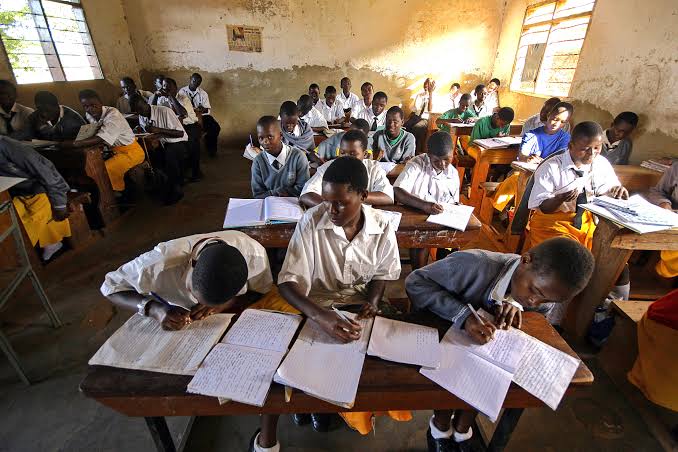The COVID-19 pandemic, which began in late 2019, continues to evolve with the emergence of new variants, raising concerns about the effectiveness of vaccines, treatments, and existing public health strategies. As the world seeks to return to normalcy, the discovery of new COVID-19 variants, characterized by mutations that potentially make them more transmissible or resistant to immunity, poses ongoing challenges to global health systems. These variants, such as the Delta, Omicron, and their sub-lineages, have highlighted significant gaps in global vaccine distribution, healthcare infrastructure, and the overall preparedness of public health systems.
In response, countries are intensifying their efforts to manage these evolving threats through a combination of booster vaccination campaigns, the development of updated vaccines targeting specific variants, and more aggressive genomic surveillance to track mutations in real-time. Moreover, the World Health Organization (WHO) and other global health bodies are coordinating international efforts to ensure that lower-income countries have access to vaccines and treatments, aiming to curb the spread of new variants that may originate in under-vaccinated regions.
In addition to scientific advancements, governments are reevaluating public health strategies, with renewed emphasis on mask mandates, social distancing measures, and travel restrictions when necessary. Economies and industries worldwide are also adapting to a reality where COVID-19 remains a persistent threat, impacting international trade, labor markets, and social systems. This report delves into the global response to the new COVID-19 variants, exploring preparedness efforts, preventive measures, the importance of public health cooperation, and how nations must adapt to manage the ongoing pandemic while striving for a return to normalcy.
Understanding COVID-19 Variants
COVID-19 variants are mutations of the SARS-CoV-2 virus. These mutations occur as the virus replicates, and while many mutations do not have a significant impact, certain variants can alter the virus’s transmissibility, severity, and immune evasion capabilities. Notable variants such as Alpha, Beta, Delta, and Omicron have shown varying levels of increased transmissibility and have led to waves of infections worldwide, each contributing to different phases of the pandemic and causing significant strain on healthcare systems. These variants have prompted governments to adjust their public health strategies in real-time, implementing new restrictions, vaccine rollouts, and booster campaigns to curb the spread.
New variants are being continuously monitored by global health organizations, such as the World Health Organization (WHO) and the Centers for Disease Control and Prevention (CDC), which categorize these mutations into different levels of risk: variants of interest (VOIs), variants of concern (VOCs), and variants under monitoring (VUMs). This classification helps prioritize resources and responses for variants that pose the greatest threat in terms of transmissibility, severity, or ability to evade immunity. As of recent reports, several new subvariants of Omicron have surfaced, raising alarms over their potential to evade immunity from previous infections or vaccinations, leading to concerns that current vaccines may need further modifications or boosters to remain effective. The continued evolution of the virus underscores the importance of global cooperation in monitoring and responding to these changes, as well as the need for ongoing scientific research to adapt vaccines and treatments. Public health measures, vaccination efforts, and the development of antiviral treatments remain critical in the fight against these emerging threats, which could challenge global recovery efforts and the return to normal life.
Global Surveillance and Monitoring Systems
Effective preparedness for new variants requires robust global surveillance systems to detect and track emerging strains. Many countries have ramped up their genomic sequencing capabilities to identify new variants promptly. The WHO’s Global Influenza Surveillance and Response System (GISRS) has played a pivotal role in monitoring these variants. Rapid data sharing between countries has allowed for quicker identification of new strains, helping public health authorities react faster.
However, there are disparities in sequencing capacities across countries, with many low- and middle-income countries facing challenges in identifying variants promptly due to limited resources. Efforts are being made to enhance global cooperation and improve genomic sequencing in these regions to ensure a more comprehensive global response.
Vaccine Adaptation and Booster Campaigns
Vaccination remains the cornerstone of global efforts to combat COVID-19, but the emergence of new variants has raised questions about the efficacy of existing vaccines. Some variants have shown reduced susceptibility to neutralization by antibodies generated from prior vaccinations or infections, leading to calls for vaccine adaptations.
Pharmaceutical companies have responded by developing variant-specific vaccines and bivalent vaccines that target multiple strains, including Omicron subvariants. Countries have also intensified their booster campaigns to bolster waning immunity, particularly in vulnerable populations such as the elderly and immunocompromised individuals. Research into next-generation vaccines, including universal coronavirus vaccines, is ongoing to ensure broader protection against future variants.
Preventive Measures: Masking, Social Distancing, and Hygiene
In addition to vaccination, traditional preventive measures like wearing masks, maintaining social distancing, and practicing good hygiene remain essential tools in curbing the spread of COVID-19, particularly with the rise of more transmissible variants. Mask mandates and social distancing regulations have been reintroduced in several countries during variant-driven surges, especially in high-density areas and during large gatherings.
Personal protective equipment (PPE) and hygiene measures continue to play a critical role, particularly in healthcare settings and for frontline workers. Governments have emphasized the need to remain vigilant, especially during colder seasons when respiratory viruses tend to spread more easily.
Treatment Advancements and Antiviral Drugs
The development of antiviral drugs, such as Paxlovid and Molnupiravir, has provided additional weapons in the fight against COVID-19, particularly in treating individuals with mild to moderate infections who are at risk of severe outcomes. These treatments have shown efficacy against some of the newer variants, although ongoing studies are evaluating their performance against emerging strains.
Monoclonal antibody treatments have been adapted to target new variants, but some treatments have been rendered less effective due to mutations. The continuous adaptation of therapeutic options is crucial to managing infections caused by variants that may partially evade immune protection from vaccines or prior infection.
Global Vaccine Inequity and Access to Resources
A significant challenge in addressing new COVID-19 variants is the persistent issue of global vaccine inequity. While many high-income countries have achieved high vaccination rates, several low- and middle-income nations lag behind due to supply chain issues, logistical challenges, and insufficient funding for vaccine procurement and distribution.
The global initiative COVAX, aimed at ensuring equitable vaccine access, has made strides in distributing vaccines to underserved regions, but gaps remain. These disparities not only hinder efforts to achieve global herd immunity but also allow the virus more opportunities to mutate and create new variants.
Beyond vaccines, equitable access to treatments, diagnostics, and PPE is also vital for a coordinated global response. Efforts to increase production and fair distribution of medical supplies remain central to ensuring all nations can effectively combat the pandemic.
International Travel and Border Control
The rise of new COVID-19 variants has led to renewed scrutiny of international travel and border control policies. Some countries have reintroduced travel bans or quarantine requirements for travelers from regions with high variant transmission rates. However, the effectiveness of such measures is debated, as the virus often spreads undetected before travel restrictions are imposed.
International collaboration is key to managing travel-related risks. The WHO has emphasized the importance of risk-based approaches that balance public health concerns with the need to maintain essential travel and trade. Testing and vaccination requirements for travelers, combined with robust contact tracing, have been adopted by many countries to minimize the spread of variants without imposing blanket bans.
Economic and Social Impact of New Variants
The emergence of new COVID-19 variants continues to have profound economic and social impacts. Lockdowns, restrictions, and disruptions to supply chains have affected global markets, particularly in sectors like tourism, hospitality, and manufacturing. Countries have struggled to strike a balance between maintaining public health and keeping their economies afloat.
The psychological toll of the pandemic, exacerbated by the uncertainty surrounding new variants, has also been significant. Anxiety, depression, and pandemic fatigue have become widespread as people face repeated waves of infections and the constant threat of new variants. Governments have been called upon to provide mental health support and maintain social services during these challenging times.
Looking Ahead: The Path to Endemicity
As the world adapts to living with COVID-19, there is growing recognition that the virus may become endemic, meaning it will continue to circulate at lower levels, much like the flu. The key challenge moving forward is managing the virus without overwhelming healthcare systems or causing significant social and economic disruptions. This requires continuous adaptation of vaccines, treatments, and public health strategies to address the evolving threat posed by new variants.
Investment in healthcare infrastructure, research, and global collaboration will be critical to future preparedness. Lessons learned from the pandemic are already shaping how countries approach public health crises, and it is imperative that the global community remains united in its efforts to combat COVID-19 and its variants.
The emergence of new COVID-19 variants presents ongoing challenges to global health systems, economies, and societies. While vaccines, treatments, and preventive measures have significantly mitigated the impact of the virus, the evolution of SARS-CoV-2 requires constant vigilance and adaptation. Global cooperation, equitable access to healthcare resources, and innovative public health strategies will be essential in managing future variants and ensuring a path toward recovery and endemicity. The world must continue to prioritize scientific research, international collaboration, and public health preparedness to combat the ever-changing landscape of COVID-19.

 A.B.M. Abir
A.B.M. Abir 

























